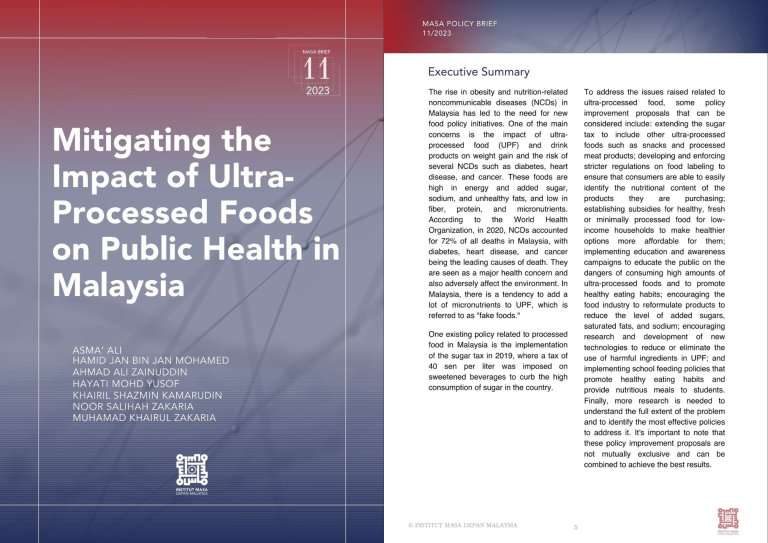The rise in obesity and nutrition-related noncommunicable diseases (NCDs) in Malaysia has led to the need for new food policy initiatives. One of the main concerns is the impact of ultra-processed food (UPF) and drink products on weight gain and the risk of several NCDs such as diabetes, heart disease, and cancer. These foods are high in energy and added sugar, sodium, and unhealthy fats, and low in fiber, protein, and micronutrients. According to the World Health Organization, in 2020, NCDs accounted for 72% of all deaths in Malaysia, with diabetes, heart disease, and cancer being the leading causes of death. They are seen as a major health concern and also adversely affect the environment. In Malaysia, there is a tendency to add a lot of micronutrients to UPF, which is referred to as “fake foods.”
One existing policy related to processed food in Malaysia is the implementation of the sugar tax in 2019, where a tax of 40 cents per liter was imposed on sweetened beverages to curb the high consumption of sugar in the country.
To address the issues raised related to ultra-processed food, some policy improvement proposals that can be considered include: extending the sugar tax to include other ultra-processed foods such as snacks and processed meat products; developing and enforcing stricter regulations on food labeling to ensure that consumers are able to easily identify the nutritional content of the products they are purchasing; establishing subsidies for healthy, fresh or minimally processed food for low-income households to make healthier options more affordable for them; implementing education and awareness campaigns to educate the public on the dangers of consuming high amounts of ultra-processed foods and to promote healthy eating habits; encouraging the food industry to reformulate products to reduce the level of added sugars, saturated fats, and sodium; encouraging research and development of new technologies to reduce or eliminate the use of harmful ingredients in UPF; and implementing school feeding policies that promote healthy eating habits and provide nutritious meals to students. Finally, more research is needed to understand the full extent of the problem and to identify the most effective policies to address it. It’s important to note that these policy improvement proposals are not mutually exclusive and can be combined to achieve the best results.




